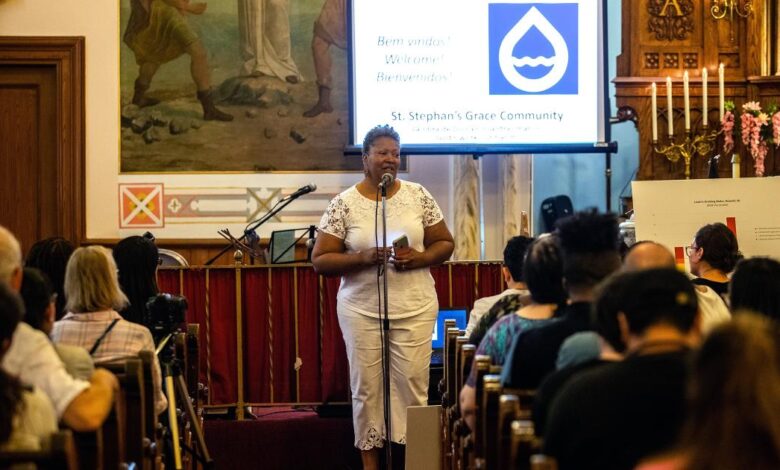An Environmental Justice Advocate Inspires Others to Become Agents of Change

[ad_1]
If you sat in on one of Yvette Jordan’s high school history or social justice classes, you might hear her pleading with students. Not asking them to be quiet, but urging them to speak up. Even if it’s over something that seems simple.
Often, their reply is, “Ms. Jordan, that’s not going to work.”
Similarly, when she talks to marginalized communities about standing up for themselves, they can feel it’s an overwhelming task. “Then I give small examples,” she says. “Like a stoplight you want to change because someone had an accident. You can write to your councilman. I talk about how those small changes can make a difference and then usually, they start nodding their heads.”
Jordan, who teaches at Central High School in Newark, New Jersey, has more recently taken up advising communities confronting environmental injustices across the country. And like many justice advocates before her, she pulls from the best source she has: her own life experience. The major impetus for supporting other impacted communities dates back to 2018 when she discovered high lead levels in her water—another symptom of what became known as the Newark lead water crisis. The lawsuit that NRDC and Jordan’s group, Newark Education Workers Caucus (NEW Caucus), brought against the city and subsequently settled, garnered national attention over the past three years. The result: A few weeks ago, the city announced it had finished replacing all 23,000 lead pipes, a project originally expected to take a decade. Safe water advocates now consider Newark a national model, but Jordan is quick to remind the people she counsels why that’s the case. Her community was “screaming and yelling” for change.
Now, she’s replicating that approach by sharing her story so other communities know what to do when environmental injustice happens in their backyards. “I feel it’s my mission to raise the voices of the disenfranchised,” she says.
And that’s exactly what she’s done.
An Evolution in Advocacy Work
Advocacy probably comes more naturally to Jordan than most. She grew up in Staten Island, New York, where she witnessed her father, a Democratic committeeman, registering people to vote and working for a councilman. “[My parents] instilled in me a love of civic engagement, being a part of your community, and doing what is right,” she says.
Eventually, Jordan served as a policy analyst for youth services in New York City during Mayor David Dinkins’ administration. The role helped her understand exactly what it took to make governments move. During that time, the administration formed a close relationship with Nelson Mandela, who was later elected president of South Africa. Jordan went on to serve as a consultant to NGOs and local governments there.
That all came in handy when the lead in Newark became a personal problem.
Jordan points out that the city’s initial response was lacking until residents fought back and the Environmental Protection Agency stepped in. “She took a lot of flak in the beginning because sometimes when you call out a local government, they can get defensive and attack the messenger,” says Jerry Epstein, a senior trial attorney at NRDC and the lead lawyer in the Newark case. “It took a lot of courage. It’s great that she can go to other communities now and say ‘Stick to it. It may be bumpy for a while, but it can work in the end.’”
[ad_2]
Read More



